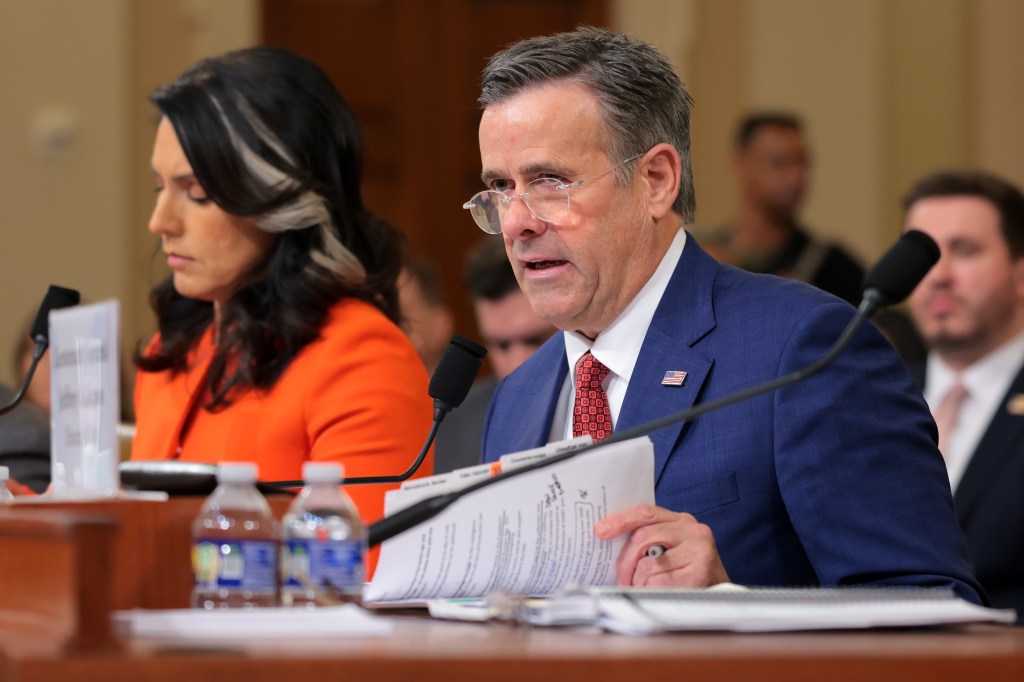
Hello and happy Saturday. We spend a fair amount of time here at The Dispatch thinking about headlines. After all, everything we publish needs one. You want to inform the readers, but also invite them to keep reading. Some pieces benefit from playing it straight, others provide the opportunity for wordplay.
I don’t know if I’ve ever seen a headline that was at once as straightforward and startling as the one published in The Atlantic on Monday: “The Trump Administration Accidentally Texted Me Its War Plans.” As you no doubt have heard by now, National Security Adviser Mike Waltz inadvertently added Atlantic editor Jeffrey Goldberg to a group chat on Signal, a text messaging app, with Defense Secretary Pete Hegseth, Vice President J.D. Vance, Secretary of State Marco Rubio, and other members of President Donald Trump’s national security team. And that is how Goldberg found himself sitting in a supermarket parking lot on March 15, reading texts claiming that the U.S. was about to launch airstrikes on Houthi terrorist targets in Yemen, only to go to X and find reports of explosions in Sanaa, the nation’s capital.
There’s a lot to unpack about the whole incident. The vice president and key Cabinet officials demonstrated utter disregard for security protocol by conducting their conversation over a commercial app that anyone can use. And while Goldberg refrained, initially, from sharing any of the texts that contained operationally sensitive information (only publishing them after the administration denied his assertion that the chat included classified information), what he did share will have repercussions for the United States on the world stage.
Vance, expressing some hesitation about the airstrikes and suggesting a month’s delay, said, “If you think we should do it let’s go. I just hate bailing Europe out again.” That prompted Hegseth to reply, “VP: I fully share your loathing of European free-loading. It’s PATHETIC.”
In the Wednesday G-File (🔒), Jonah Goldberg (who is not only not Jeffrey Goldberg, but not related to him at all) argued that the open disdain for our allies “will reverberate for decades to come.” While Vance’s scorn for Europe is on the record—he delivered a speech from the Munich Security Conference scolding European leaders for how their countries have been handling immigration, free speech, and religious liberty—Jonah pointed out that “Trump and his surrogates don’t always mean what they say.” But now the truth is out there.
Imagine you’re a pro-American foreign minister or parliamentarian who has been reluctant to give up on America or side with anti-American domestic factions. This chat makes it clear, at minimum, that it would be foolish to rely on America. Even if you think, as Keir Starmer, Emmanuel Macron and others do, that they can play nice for the duration of the Trump administration and then work to repair relations once he’s out of office, the fact that America will remain just one election away from this kind of administration means, strategically, America is unreliable over the long term.
In Boiling Frogs (🔒), Nick Catoggio critiqued the administration’s response and warned that the scandal is just a preview of what’s to come.
Trump’s second administration will be an orgy of foreign espionage. It’s staffed to the gills with lackwit toadies, sociopathic grifters, and authoritarian ideologues and so, for the next four years, U.S. intelligence will be profligately stolen, sold, or incompetently fumbled away. And that’s just the illegal stuff. The legal stuff is also dismaying: Elon Musk’s operation is seizing treasure troves of federal data, federal cybersecurity experts are being fired willy-nilly, the Justice Department has disbanded its Foreign Influence Task Force, and the president and some of his most trusted deputies keep sounding like Russian agents.
For now, no one in the administration has been fired for the security breach. But Charles Hilu reported Friday that some Republican lawmakers are challenging the administration to be more forthcoming. GOP Sen. Roger Wicker, for example, told reporters he wanted the administration to provide a classified briefing—in a secure location!—about what happened. Other Republicans aren’t buying the claim that the information was not classified. “They’re playing word games,” GOP Rep. Don Bacon of Nebraska said. “They’re digging a hole, and they’re hurting their own credibility.”
If you need a little counterprogramming, we had some great pieces this week. Alex Demas wrote an in-depth feature on the rise of D.C.’s craft cocktail scene (insert jokes about drinking on the job here), contributing writer Jeremiah Johnson had some advice for Democrats, and fellow contributing writer Tim Mak explored the thorny ethics of making drones more autonomous. Thanks for reading, and have a great weekend.

















